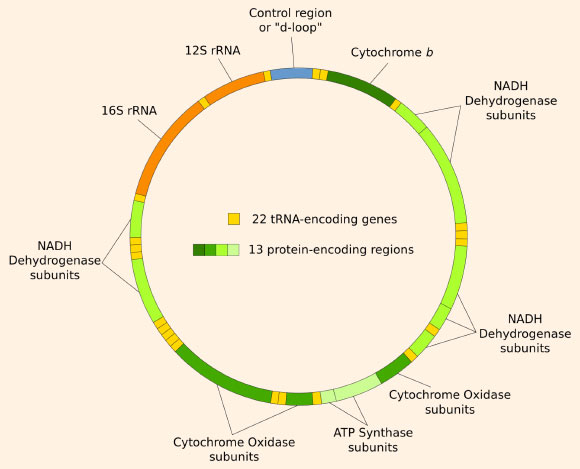A new study published in the journal PLoS Genetics has confirmed a genetic link between mitochondrial DNA, which is passed on from the mother, and some forms of autism spectrum disorder.
Mitochondria contain their own genome, the mitochondrial DNA (mtDNA), and are abundant in the brain where they produce energy and intracellular signals required for normal brain function and cognition.
Previous research suggested a link between mitochondrial dysfunction and autism spectrum disorder (ASD), but those studies included small sample sizes and could not verify whether the cause was genetic or environmental.
The current study, led by Cornell University researcher Zhenglong Gu, analyzed mtDNA in 903 families, where the authors compared the mtDNA of an affected child and an unaffected sibling and their mother.
“A possible cause of ASD is the genetic variation in the mtDNA sequence, which has yet to be thoroughly investigated in large genomic studies of ASD,” Dr. Gu and co-authors said.
“We evaluated mtDNA variation, including the mixture of different mtDNA molecules in the same individual (i.e., heteroplasmy), using whole-exome sequencing data from mother-proband-sibling trios from simplex families where only one child is affected by ASD.”
The researchers found that in instances when the children had both mutant and normal mtDNA in a single cell, all the children showed similar numbers of mutant mtDNA, but the autistic children had more than twice as many harmful mtDNA mutations compared to their non-autistic siblings.
“When we compared the inheritance between the mother and the children, we confirmed this particular pattern, which is the child with autism inherited more bad mutations than their siblings during the process of passing mtDNA from mother to children,” Dr. Gu explained.
“We show not only that mtDNA heteroplasmy is associated with autism, but also, among autistic kids, these pathogenic mtDNA mutations are significantly associated with intellectual disability, and other neurological and developmental defects,” added first author Yiqin Wang, a graduate student at Cornell University.
The team’s findings may lead to better diagnosis and treatment of children with a sub-type of autism caused by pathogenic mtDNA mutations.
“Analyzing mtDNA could help diagnose some forms of autism in the future,” Dr. Gu said. “Interventions restoring mitochondrial function might also be useful for treatment. “
“These findings also have relevance for other childhood neurodevelopmental disorders, which may be caused by disease-causing mtDNA mutations and is a subject for future work.”
Compared to nuclear DNA, mtDNA is known to mutate rapidly, which has prompted Dr. Gu and his colleagues at Cornell University and Columbia University Medical Center to look for age-related diseases and pediatric diseases linked to these mutations.
“During egg production, there is a dramatic reduction in the numbers of copies of mtDNA, as a way of eliminating bad mutations passed from mother to child,” Dr. Gu said.
“But some bad mutations still pass to the next generation, and the number of pathogenic mtDNA in children may be affected by the mother’s environment or physiology.”
“Does the mother have inflammation or diabetes, or is she obese? These things could make the process of cleaning up mutations less efficient. This could give us some insight into why autism is rising, and will be a subject for future studies.”
“Future work will also include looking into the effects of environment, diet and the mother’s health on mtDNA in children,” Dr. Gu added.
_____
Wang Y. et al. 2016. Genetic Evidence for Elevated Pathogenicity of Mitochondrial DNA Heteroplasmy in Autism Spectrum Disorder. PLoS Genet 12 (10): e1006391; doi: 10.1371/journal.pgen.1006391








